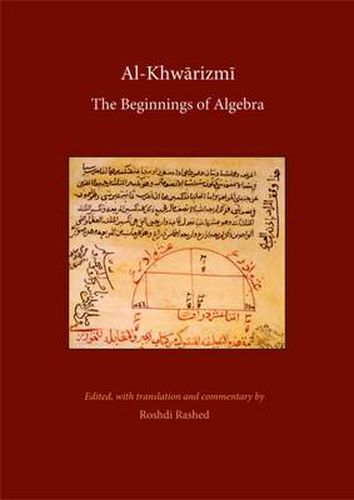Readings Newsletter
Become a Readings Member to make your shopping experience even easier.
Sign in or sign up for free!
You’re not far away from qualifying for FREE standard shipping within Australia
You’ve qualified for FREE standard shipping within Australia
The cart is loading…






Al-Khwarizmi was a mathematician, astronomer and geographer. He worked most of his life as a scholar in the House of Wisdom in Baghdad during the first half of the 9th century and is considered by many to be the father of algebra. His Algebra (Kitab al-Jabr wa-al-muqabala), written around 820, was the first scientific text in history to systematically present algebra as a mathematical discipline that is independent of geometry and arithmetic. This groundbreaking work is divided into two main sections: one dealing with algebraic theory, and the other focusing on the calculation of inheritances and legacies. Al-Khwarizmi’s book laid down the groundwork for a scientific field where mathematics and juridical learning meet, which was furthermore developed through the efforts of successive generations of mathematicians and jurists. This text also highlighted for the first time the deep-rooted possibilities in algebra to extend the use of mathematical disciplines from one to another, such as the application of arithmetic to algebra, or of geometry into algebra, and vice-versa for these three disciplines into one another; hence opening up novel areas of mathematical research. Latin translations of al-Khwarizmi’s book began in the 12th century, and these texts held a continuous influence over algebra and mathematics until the 16th century.
$9.00 standard shipping within Australia
FREE standard shipping within Australia for orders over $100.00
Express & International shipping calculated at checkout
Al-Khwarizmi was a mathematician, astronomer and geographer. He worked most of his life as a scholar in the House of Wisdom in Baghdad during the first half of the 9th century and is considered by many to be the father of algebra. His Algebra (Kitab al-Jabr wa-al-muqabala), written around 820, was the first scientific text in history to systematically present algebra as a mathematical discipline that is independent of geometry and arithmetic. This groundbreaking work is divided into two main sections: one dealing with algebraic theory, and the other focusing on the calculation of inheritances and legacies. Al-Khwarizmi’s book laid down the groundwork for a scientific field where mathematics and juridical learning meet, which was furthermore developed through the efforts of successive generations of mathematicians and jurists. This text also highlighted for the first time the deep-rooted possibilities in algebra to extend the use of mathematical disciplines from one to another, such as the application of arithmetic to algebra, or of geometry into algebra, and vice-versa for these three disciplines into one another; hence opening up novel areas of mathematical research. Latin translations of al-Khwarizmi’s book began in the 12th century, and these texts held a continuous influence over algebra and mathematics until the 16th century.